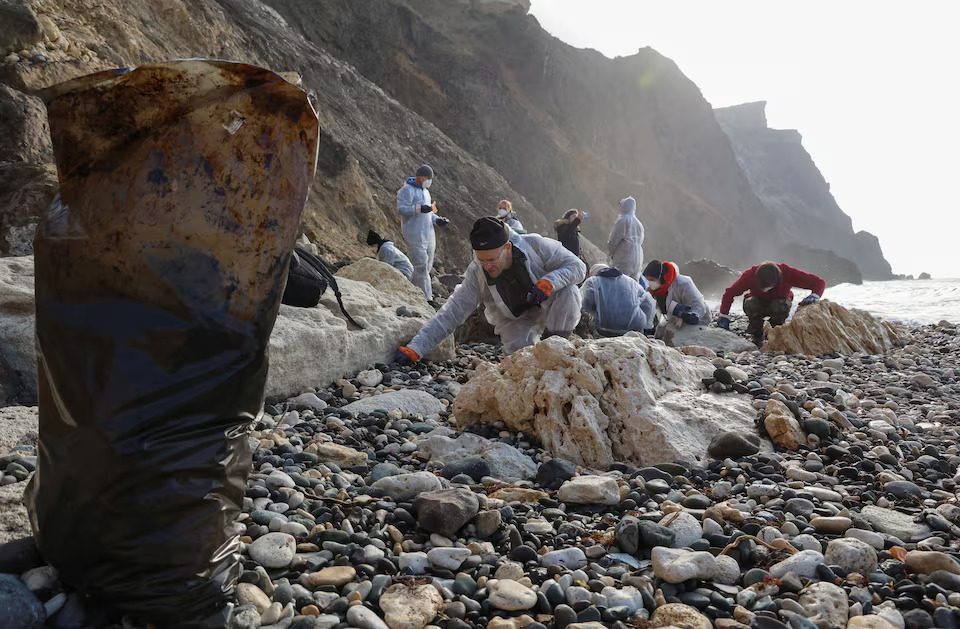MOSCOW, Jan 10 (Reuters) – Emergency workers toiling to clean up an oil spill in the Black Sea have detected seven new slicks, a Russian official told the TASS state news agency on Friday, as authorities struggle to mitigate the effects of the nearly month-old disaster.
Approximately 2,400 metric tons of oil products have spilled into the sea since Dec. 15, when two ageing tankers were hit by a storm in the Kerch Strait.
President Vladimir Putin said on Thursday that the clean-up efforts so far have been insufficient to deal with the scale of the situation, which he called “one of the most serious environmental challenges we have faced in years”.

Andrei Pavlyuchenko, an emergency ministry official in Russian-annexed Crimea, said on Friday that workers had identified seven more cases of pollution along beaches in four districts in Crimea, as well as on Tuzla Island, a narrow spit of land underneath the Crimean Bridge linking southern Russia to the Black Sea peninsula.
Pavlyuchenko told TASS the new contaminated area was about 9 miles (14 km) long, and that 10 vessels and two aircraft were involved in monitoring the coast.
Since the spill, thousands of emergency workers and volunteers have been working to clear tons of contaminated sand and earth on either side of the Kerch Strait. Environmental groups have reported deaths of dolphins, porpoises and sea birds.
One tanker, the 136-metre Volgoneft 212, split in half and sank, killing one crew member. Russian authorities said on Friday they had detected a new leakage from the stern of the other vessel, the 132-metre Volgoneft-239, which ran aground during the storm.
“Monitoring groups found that oil products have started to come out of the vessel,” the operational headquarters of Russia’s Krasnodar region, across the strait from Crimea, wrote on Telegram.
Russia’s transport ministry said the new slick from the Volgoneft-239 was about 30,000 square feet (2,800 square metres) in size, roughly equivalent to 10 tennis courts.
It said specialists were working to remove the waste and were monitoring for new leakages around the clock.

